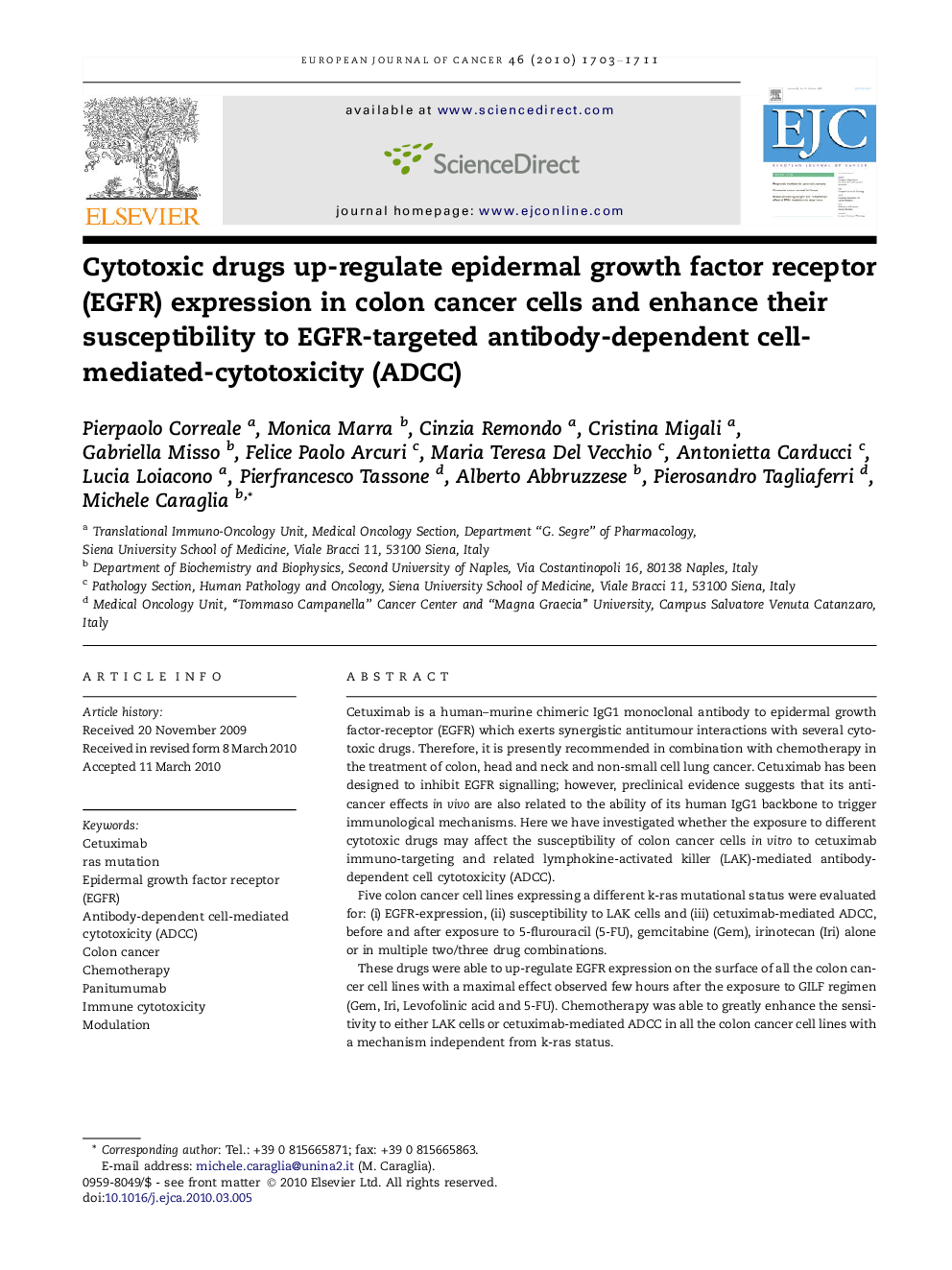| Article ID | Journal | Published Year | Pages | File Type |
|---|---|---|---|---|
| 2123411 | European Journal of Cancer | 2010 | 9 Pages |
Cetuximab is a human–murine chimeric IgG1 monoclonal antibody to epidermal growth factor-receptor (EGFR) which exerts synergistic antitumour interactions with several cytotoxic drugs. Therefore, it is presently recommended in combination with chemotherapy in the treatment of colon, head and neck and non-small cell lung cancer. Cetuximab has been designed to inhibit EGFR signalling; however, preclinical evidence suggests that its anti-cancer effects in vivo are also related to the ability of its human IgG1 backbone to trigger immunological mechanisms. Here we have investigated whether the exposure to different cytotoxic drugs may affect the susceptibility of colon cancer cells in vitro to cetuximab immuno-targeting and related lymphokine-activated killer (LAK)-mediated antibody-dependent cell cytotoxicity (ADCC).Five colon cancer cell lines expressing a different k-ras mutational status were evaluated for: (i) EGFR-expression, (ii) susceptibility to LAK cells and (iii) cetuximab-mediated ADCC, before and after exposure to 5-flurouracil (5-FU), gemcitabine (Gem), irinotecan (Iri) alone or in multiple two/three drug combinations.These drugs were able to up-regulate EGFR expression on the surface of all the colon cancer cell lines with a maximal effect observed few hours after the exposure to GILF regimen (Gem, Iri, Levofolinic acid and 5-FU). Chemotherapy was able to greatly enhance the sensitivity to either LAK cells or cetuximab-mediated ADCC in all the colon cancer cell lines with a mechanism independent from k-ras status.The results of our study suggest that chemotherapy may enhance cetuximab-mediated immuno-targeting and ADCC thus providing the rationale to design novel immuno-biochemotherapy regimens.
